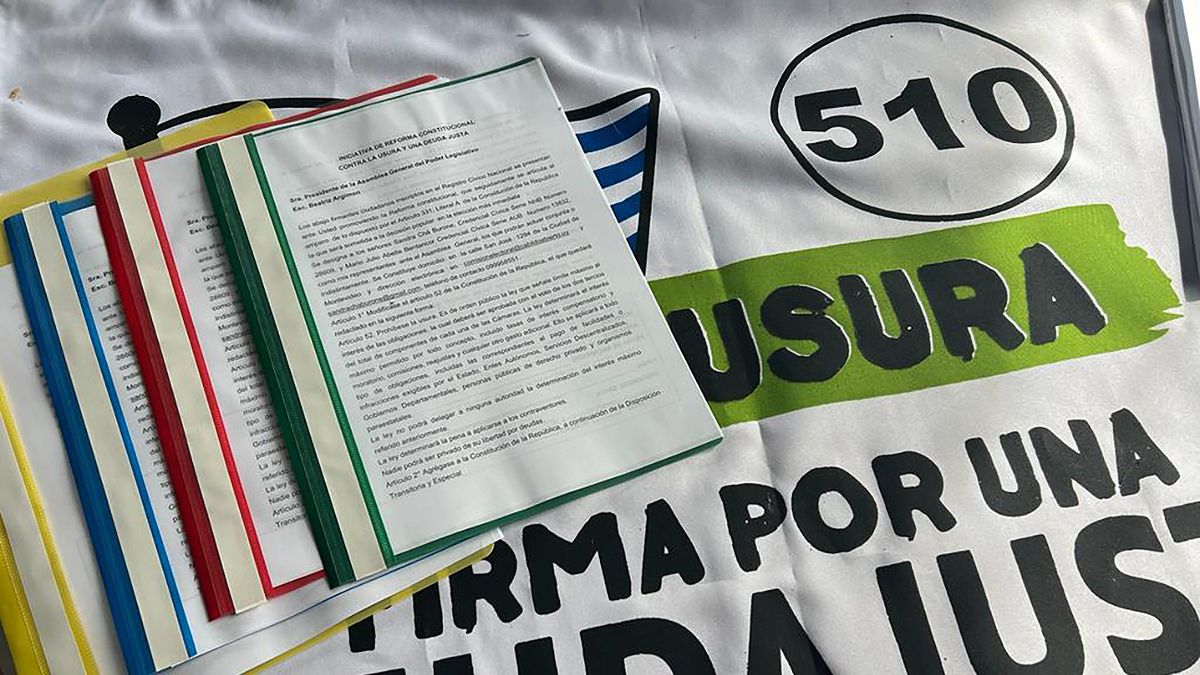He plebiscite of Town meeting “against usury and for a fair debt, that seeks to provide a solution to the problem of over-indebtedness of half of the population of Uruguay through a constitutional reform, it could not be carried out: not because the necessary number of signatures is not reached, but because of an article on the ballot that calls into question its implementation.
There is one week left until the legal deadline to present the 270,000 signatures—10% of the registry—before the Electoral Court, so that the popular consultation is enabled to be carried out together with the national elections in October. However, the outlook for Council Open It does not seem to be very encouraging: in the first two weeks of April they achieved 30,000 new adhesions, but they still had at least another 70,000 to achieve.
Given the complex scenario of being able to meet the requirements for the plebiscite this year, from the party led by Guido Manini Ríos They have already begun to think about alternatives that allow them not to miss the “golden opportunity” of setting limits on the financial systems: If they do not reach April 27, they will continue collecting signatures and present them later, to put the proposal for consideration by the population in the next election, when mayors and departmental positions are elected.
In fact, article 331 of the Constitution endorses it in its section C, by making it clear that the plebiscite will be held in the “closer” elections once the number of minimum required adhesions is met and it is ratified by the Electoral Court.
Is the plebiscite in danger?
Despite this “second chance” that the lobbying initiative could have, the very wording of the proposal to be submitted to popular consultation is an obstacle that, perhaps, is insurmountable and puts the entire plebiscite at risk.
This is because the third article of the ballot “Against usury and for fair debt” establishes that the constitutional reform “will come into effect on March 1, 2025.” The date had been set based on achieving 270,000 signatures by the end of April and thus being able to carry out the consultation in October. However, the change in schedule may not be the window that opens after the door closes.
The problem is that, if the campaign to gather signatures for the next election continues, the plebiscite will be held in May 2025, along with the departmental and municipal elections. That is, they would vote for a constitutional reform that, according to what is established, should come into force in March, two months before the elections.
According to the deputy Eduardo Lust, former member of Town meeting and constitutional lawyer, to Radio Sarandí, “that ballot cannot be used for May 2025,” so, in any case, the accessions board should return to zero page.
He also agreed on this Martin Risso, another constitutional lawyer, for whom the reference to specific dates would prevent the plebiscite from being held in May. “Because of the text that people sign, a plebiscite could not be held if signatures are not reached now,” he remarked.
The best possible scenario is that Town meeting continue the collection of signatures and achieve the remaining accessions as soon as possible, thinking about a balloting scenario to convert this electoral instance into the “closest” elections, thus avoiding the legal and technical vicissitudes of having set a date on your ballot. Otherwise, it will be the Electoral Court that must analyze the case and define the future of the lobbying plebiscite.
Source: Ambito




